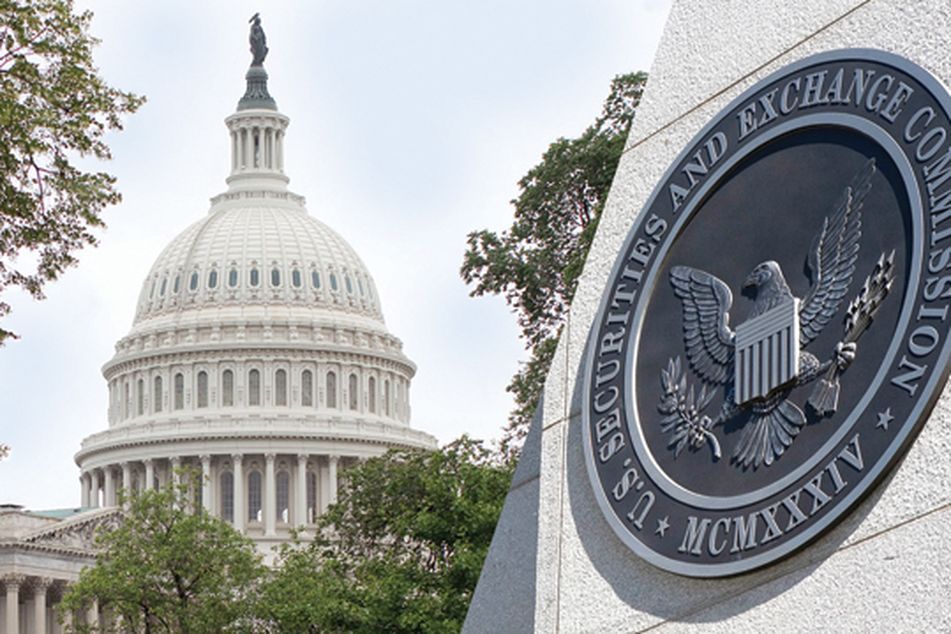State regulators on adviser SRO: Thanks, but no thanks

SEC Commissioner Elisse Walter picked a tough crowd before which to try to drum up support for a draft SRO bill for investment advisers proposed by House Financial Services Committee Chairman Spencer Bachus.
Securities and Exchange Commissioner Elisse Walter may have picked the wrong place to give a speech lauding the virtues of a self-regulatory organization for investment advisers.
In an address yesterday to the North American Securities Administrators Association Inc. annual conference in Wichita, Kan., Ms. Walter endorsed a draft bill proposed by House Financial Services Committee Chairman Spencer Bachus, R-Ala., that would authorize one or more SROs and essentially require all retail investment advisers to sign up with one. Ms. Walter said an SRO is the best way to strengthen oversight of the investment advice industry
But state securities administrators were wary of the Bachus proposal, which will be the subject of a congressional hearing today. They say that the plan could lead to the Financial Industry Regulatory Authority Inc. or other SROs usurping their role in overseeing smaller advisers.
Shifting oversight for certain advisers from the states to an SRO “would increase costs without substantially enhancing investor protection,” Pennsylvania securities commissioner Steve Irwin said in testimony prepared for today’s hearing on Capitol Hill. “This would subject these small businesses to duplicative regulation and add new and unnecessary costs.”
Yesterday in Wichita, however, Ms. Walter said that the SEC is unlikely to receive the funding it needs from Congress to expand its adviser examination program. In a report to Congress earlier this year, the agency acknowledged that it reviews only about 9% of the nearly 12,000 registered advisers.
That study, mandated by the Dodd-Frank financial reform law, recommended three ways to increase oversight — allow the SEC to charge user fees for exams, establish an SRO or enable Finra to oversee investment advisers who are dually registered as broker-dealers. Any of the three would require congressional authorization.
“Opposition to user fees and difficulties of the annual appropriations process make it difficult to foresee a situation in which this Congress would allocate the resources the SEC would need to significantly increase adviser examinations,” Ms. Walter said at the NASAA conference. “Swift and decisive action is critical — not relegating it to another day.”
In an interview after her speech, Ms. Walter said she likes what she’s seen of Mr. Bachus’ proposal. “The backbone of the bill is really a good one, from an initial look,” she said.
The measure left a much different impression on David Massey, deputy securities administrator in North Carolina.
He said the proposal appears to allow SROs to supersede state oversight advisers. Under Dodd-Frank, state regulators are set to extend their reach by next summer to all advisers with less than $100 million in assets under management. Currently, states oversee those with $25 million or less in AUM.
“The new proposal coming out of this committee would essentially undercut that by taking away the authority that Dodd-Frank gives the states to regulate the under-$100 million [investment advisers] and force it to be shared with an SRO over which the states have no regulatory power,” said Mr. Massey, who just completed a one-year term as NASAA president. “It’s kind of complicated. This is a discussion draft right now, but you’ve got to wonder.”
Finra supports establishing one or more adviser SROs, arguing that it would subject advisers to a greater level of scrutiny comparable to the oversight the self-regulator provides to broker-dealers. In testimony before the House subcommittee, Finra chief executive Richard Ketchum is expected to say that his group is uniquely positioned to be one of the adviser SROs.
An SEC representative declined to comment about the state regulators’ concerns about how an SRO would mesh with state regulation.
Mr. Bachus’ draft proposal states that nothing in the bill should be “construed to limit or detract from the authority or ability of any state to regulate any investment adviser.” But Ms. Walter agreed that the suggested legislative language leaves room for interpretation about whether the states would be trumped by an SRO.
“That’s not really addressed in this bill,” she said. “That’s one of those topics that needs to be addressed in one way or the other.”
Learn more about reprints and licensing for this article.








